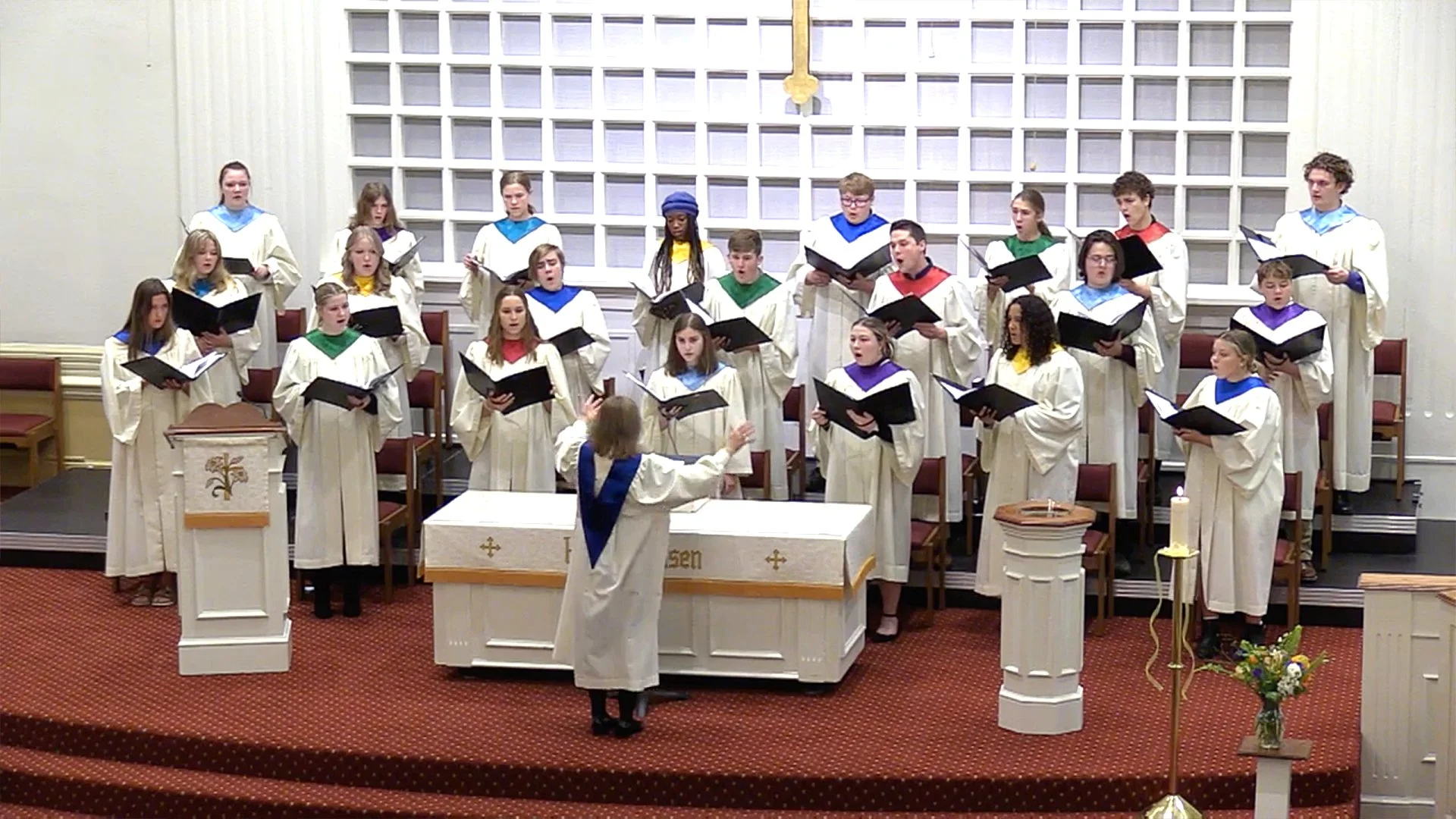Hymn of the Week: June 21,2024
In Christ There Is No East or West
Glory to God 317 and 318
Text: John Oxenham 1908
Music: MCKEE or African American spiritual song from Harry T. Burleigh 1940 Hymn 317
Music : ST. PETER Alexander Robert Reinagle 1836 hymn 318
1 In Christ there is no east or west,
in him no south or north,
but one great fellowship of love
throughout the whole wide earth.
2 In Christ shall true hearts everywhere
their high communion find;
his service is the golden cord
close-binding humankind.
3 Join hands, disciples of the faith,
whate'er your race may be.
All children of the living God
are surely kin to me.
4 In Christ now meet both east and west;
in him meet south and north.
All Christly souls are one in him
throughout the whole wide earth.
The following is from Dr. Michael Hawn:
John Oxenham is one of the pen names for businessman William J. Dunkerly (1852-1941). He trained for his career in business at Victoria University, Manchester, and traveled extensively to Europe, the United States and South America, living in France several years.
Oxenham made his home in the U.S. for a time before returning to England, where he died at the age of 89. According to hymnologist Albert Bailey, Oxenham began writing “to relieve the tedium of long journeys . . . and soon discovered that he liked writing better than business.”
The poem was originally part of a libretto, “Darkness and Light,” prepared in 1908 for an exhibition for the London Missionary Society on the theme “The Orient in London.” He then included this poem in his collection, Bees in Amber (1913). This popular volume was rejected by publishers; when Oxenham self-published it, the book sold 285,000 copies. From here the hymn found its way into many English-language hymnals, beginning with England’s Songs of Praise (1931).
English literary scholar and hymnologist J.R. Watson states that the hymn takes its opening idea from Rudyard Kipling’s famous lines, “Oh, East is East, and West is West, and never the twain shall meet” from “The Ballad of East and West,” published in Barrach-Room Ballads, and Other Verses (1892). However, Oxenham’s hymn is the antithesis of Kipling’s verse.
As UM Hymnal editor Carlton Young observes, “[t]he theme of Oxenham’s hymn, one of the most durable hymnic statements of Christian unity in the twentieth century, is from Galatians 3:28: ‘There is no longer Jew or Greek, there is no longer slave or free, there is no longer male and female; for all of you are one in Christ.’”
As a hymn on Christian unity, changes in attitude toward inclusive language affected the hymn as it appeared in hymnals. Editors felt that a hymn espousing Christian unity should reflect gender equality in its language, especially when drawing upon Galatians 3:28. This presented a problem in the original stanza three:
Join hands, then, disciples of the faith,
Whate’er your race may be;
All children of the living God are surely kin to me.
Stanza three in The UM Hymnal was rewritten by Lawrence Stookey (b. 1937), a member of the language and theology subcommittee of the Hymnal Revision Committee for The United Methodist Hymnal (1989) who was given the task of revising the words of the hymn. Dr. Stookey, a retired professor of worship at Wesley Seminary, noted in correspondence with Dr.Young that, “after numerous unsatisfactory attempts to make Oxenham’s language inclusive, I decided to write a replacement stanza based on Galatians 3:28.”
For many years, the standard tune for this text has been ST. PETER, composed in 1836 by early American composer Alexander Reinagle. More recently, many hymnals have used a tune adapted from a spiritual by the famous African-American composer and songwriter, Harry T. Burleigh (1866-1949).
Dr. Young notes that the tune McKEE was arranged from the chorus of “Done changed my name for the coming day” found in “Jubilee Songs” in The Story of the Jubilee Singers (1897). The tune was named for the rector of St. George’s Episcopal Church in New York City, Elmer M. McKee, where Burleigh was the baritone soloist for over 50 years.
Though originating in the missionary movement in the 19th and early 20th centuries, this hymn gratefully lacks the triumphalism and hegemonic assumptions of so many mission hymns of this era. Perhaps the author’s extensive travel helped him develop a sense of Christian unity beyond the racial and cultural differences that he observed.
Indeed, the focus of this hymn has shifted from world missions in the early 20th century to a great hymn of Christian unity for the 21st-century church.
Dr. Hawn is professor of sacred music at Perkins School of Theology at SMU.
This is the MCKEE version taken from the spiritual arranger Harry T. Burleigh
Here is an electronic version on the “organ” of the St. Peter version







